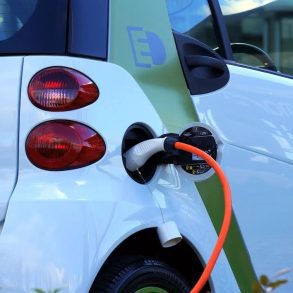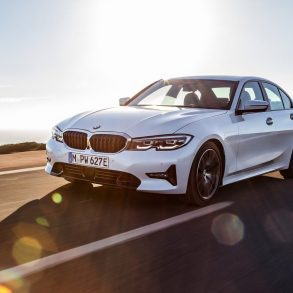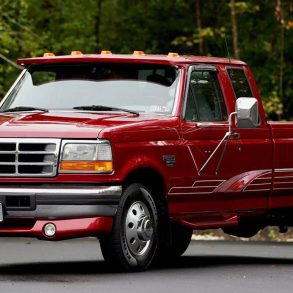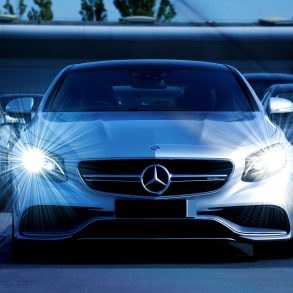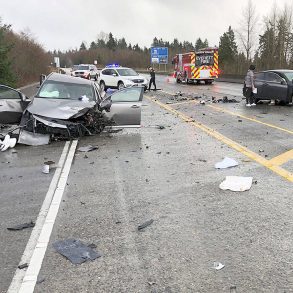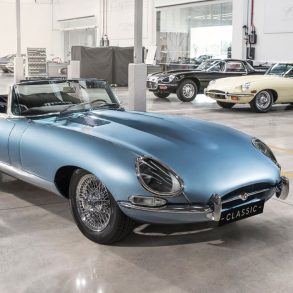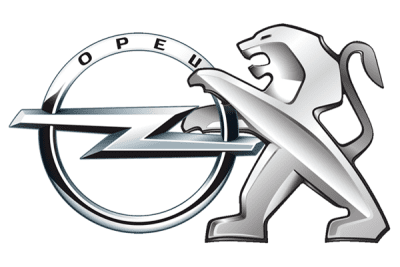 This week it became apparent that PSA Peugeot-Citroën and General Motors are having talks about the possible takeover of GM’s European division by the French automaker. This includes the Opel and Vauxhall brands, which have been a decade-long money drain on General Motors. The two automakers have been working together closely on the development of a handful of models and are looking for opportunities to boost each company’s profitability, which includes a sale of the two brands. GM has had a stake in PSA until 2013 when it became apparent that projected savings from their cooperation and platform sharing would fall short of expectations. After this breakup, the French company had to be bailed out by the French government and its Chinese partner Dongfeng Motor, which each control 14% of the shares.
This week it became apparent that PSA Peugeot-Citroën and General Motors are having talks about the possible takeover of GM’s European division by the French automaker. This includes the Opel and Vauxhall brands, which have been a decade-long money drain on General Motors. The two automakers have been working together closely on the development of a handful of models and are looking for opportunities to boost each company’s profitability, which includes a sale of the two brands. GM has had a stake in PSA until 2013 when it became apparent that projected savings from their cooperation and platform sharing would fall short of expectations. After this breakup, the French company had to be bailed out by the French government and its Chinese partner Dongfeng Motor, which each control 14% of the shares.
Would a new, more intense cooperation bring the promised synergies? And does this mark the start of a much-needed wave of consolidations in the European car market? Or will it only cause PSA to lose focus on its own financial recovery and resurrection of its brands? Let’s look a the pros and cons for both parties involved:
From PSA perspective: pro
Combining the brands Peugeot, Citroën, DS, Opel and Vauxhall would create a manufacturer with a share of 16,3% of the European car market (per 2016), which would be the region’s second-biggest auto group after Volkswagen Group (24%) and ahead of Renault-Nissan (13,8%). According to FCA chairman Sergio Marchionne no automaker can be sustainably profitable at an annual production of fewer than 6 million units. PSA is currently at half that volume worldwide and Opel/Vauxhall would add an extra million to that. This scale is needed to gain substantial savings in product development, joint purchasing and overhead expenses.
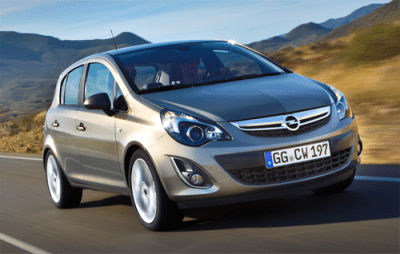 According to sources close to the negotiations, PSA is also looking to get access to Opel’s engineering expertise, OnStar connectivity technology and its electric-car technology. However, I find it hard to believe the latter two will be included in a possible deal, as these are not exclusive to Opel/Vauxhall and are part of GM’s competitive advantage. The electric vehicle technology is largely developed by Chevrolet for its Bolt EV, while OnStar is a stand-alone subsidiary of General Motors and has been used in the company’s American models for over 20 years but has only recently made its way across the Atlantic into Opel/Vauxhall models.
According to sources close to the negotiations, PSA is also looking to get access to Opel’s engineering expertise, OnStar connectivity technology and its electric-car technology. However, I find it hard to believe the latter two will be included in a possible deal, as these are not exclusive to Opel/Vauxhall and are part of GM’s competitive advantage. The electric vehicle technology is largely developed by Chevrolet for its Bolt EV, while OnStar is a stand-alone subsidiary of General Motors and has been used in the company’s American models for over 20 years but has only recently made its way across the Atlantic into Opel/Vauxhall models.
From PSA perspective: con
PSA is already too dependent on the European car market compared to other automakers. In recent years, the company has attempted to reduce this dependency by investing in emerging markets like North Africa, Iran and most recently India, where it also bought the rights to the Ambassador brand and has invested in localized production. It’s also in takeover talks with Malaysia’s Proton, which would give it better access to the South-East Asian countries and a modern production facility in that fast-growing ASEAN region. However, these are long term investments and it will take years before they start paying off with significant volume. Besides that, they’ve been far offset by reduced volumes for PSA in China, Russia and South America, which means the automaker still sells more than 60% of its production volume in Europe, more than any other large automaker. Opel/Vauxhall have virtually no presence outside of Europe since GM pulled the brand from the Russian and Chinese car markets in 2015, which means the dependency on Europe of the combined brands would be increased beyond 70% after the takeover. This could form a risk when this market faces another downturn.
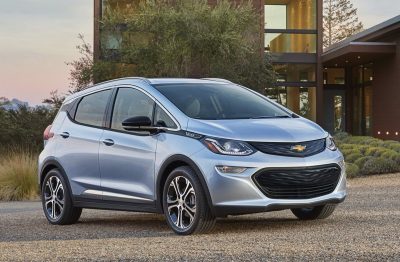 Besides that, both Peugeot, Citroën and Opel/Vauxhall are players in the struggling mainstream market in Europe, whose consumers are drifting away from mainstream brands in favor of low-cost or premium brands. Also, all 3 brands have struggled with their brand images in the last decade or longer, suffering from low quality (PSA), uninspiring styling (Opel/Vauxhall) and a lack of new products (all three). Also, both companies have suffered from chronic overcapacity in Europe. Sure, all of these issues have been in the process of getting fixed in recent years but I think there are too many resemblances in the three brands’ struggles, and a merger would only make them weaker instead of stronger. There are simply too many mainstream brands with too little distinction between them, and that means it’s better for everyone if one or more brands would just disappear altogether, just like it’s happened in the US with Pontiac, Saturn, Scion and Suzuki.
Besides that, both Peugeot, Citroën and Opel/Vauxhall are players in the struggling mainstream market in Europe, whose consumers are drifting away from mainstream brands in favor of low-cost or premium brands. Also, all 3 brands have struggled with their brand images in the last decade or longer, suffering from low quality (PSA), uninspiring styling (Opel/Vauxhall) and a lack of new products (all three). Also, both companies have suffered from chronic overcapacity in Europe. Sure, all of these issues have been in the process of getting fixed in recent years but I think there are too many resemblances in the three brands’ struggles, and a merger would only make them weaker instead of stronger. There are simply too many mainstream brands with too little distinction between them, and that means it’s better for everyone if one or more brands would just disappear altogether, just like it’s happened in the US with Pontiac, Saturn, Scion and Suzuki.
Lastly, there remains the question if the aqcuisition of Opel/Vauxhall won’t stretch PSA’s resources too far, since the company had to be bailed out not long ago? I mean not only in terms of capital resources, but also in terms of management focus: all attention aimed at merging the brands and cutting costs is not aimed at expanding its sales outside of Europe, or finally refinding Citroën’s mojo. Nor do I expect DS to get the attention it deserves and needs in order to build it into a global luxury player. And if the takeover of Proton also materializes, its resources will be stretched even thinner. Then again, Chinese Volvo owner Geely appears to have an edge over PSA in this bid, which is expected to be decided in April.
From GM perspective: pro
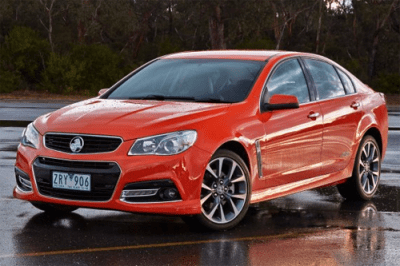 GM has lost about $20 billion in Europe since 1999 and just when it was expected to break even for the first time in decades, the Brexit vote weighed in on the British Pound and GM Europe’s profits, increasing the pressure to cut its lossmaking subsidiary. As General Motors has failed to understand the specific needs and desires of the European car buyer, selling Opel/Vauxhall would give it a painless exit from Europe so it can focus on its more profitable markets and brands. The post-bankruptcy GM has shown it’s not afraid to cut loss-making divisions or pull out of markets as China, Russia, Australia and Europe (with Chevrolet) can attest. The global behemoth just doesn’t have the scale in Europe to make money in this mature and stagnating market.
GM has lost about $20 billion in Europe since 1999 and just when it was expected to break even for the first time in decades, the Brexit vote weighed in on the British Pound and GM Europe’s profits, increasing the pressure to cut its lossmaking subsidiary. As General Motors has failed to understand the specific needs and desires of the European car buyer, selling Opel/Vauxhall would give it a painless exit from Europe so it can focus on its more profitable markets and brands. The post-bankruptcy GM has shown it’s not afraid to cut loss-making divisions or pull out of markets as China, Russia, Australia and Europe (with Chevrolet) can attest. The global behemoth just doesn’t have the scale in Europe to make money in this mature and stagnating market.
GM finally has brought Opel/Vauxhall on the right track when it comes to product, quality and design, and the division would have been profitable in 2016 if it weren’t for the exchange rate hit taken after the Brexit vote. This gives arguments to both sides: some would say this is a good moment to get a good price for the brands, while others would prefer to hold on and reap the benefits of profitability. However, the fact remains that long-term profitability for a relatively small brand like Opel/Vauxhall is almost impossible to achieve, so the timing would indeed be right considering this is one of the few moments there’s a positive outlook for the brand.
From GM perspective: con
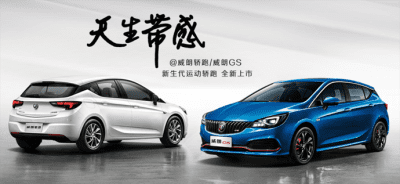 I think GM had better sold Opel/Vauxhall in 2009 when it had the chance, perhaps at BMW which was rumored to have had an interest in the division at that time, or even Canadian/Austrian automotive supplier Magna, which both would have had more financial power and more clout to restructure the brand. An alternative option would be to fully integrate Opel/Vauxhall with Buick and Holden (and perhaps GM Korea) to reach a global scale for their combined brands and models. Currently it has been a half-assed attempt with some product sharing but no real vision for the European brand. A sale of the European division would mean Buick would lose the Regal midsized sedan (known as Insignia in Europe) and the low-volume but image-building Cascada convertible, and cut economies of scale on the Encore crossover (sold in Europe as the Mokka), as well as the Chevrolet Spark (Opel Karl/Vauxhall Viva), and the Buick Excelle GS in China. Besides that, the European R&D centers also developed a lot of technology for other GM brands and markets, so GM will lose important engineers and know-how with the sale.
I think GM had better sold Opel/Vauxhall in 2009 when it had the chance, perhaps at BMW which was rumored to have had an interest in the division at that time, or even Canadian/Austrian automotive supplier Magna, which both would have had more financial power and more clout to restructure the brand. An alternative option would be to fully integrate Opel/Vauxhall with Buick and Holden (and perhaps GM Korea) to reach a global scale for their combined brands and models. Currently it has been a half-assed attempt with some product sharing but no real vision for the European brand. A sale of the European division would mean Buick would lose the Regal midsized sedan (known as Insignia in Europe) and the low-volume but image-building Cascada convertible, and cut economies of scale on the Encore crossover (sold in Europe as the Mokka), as well as the Chevrolet Spark (Opel Karl/Vauxhall Viva), and the Buick Excelle GS in China. Besides that, the European R&D centers also developed a lot of technology for other GM brands and markets, so GM will lose important engineers and know-how with the sale.
Even though GM has lost money in Europe for almost 20 years, if the sale goes through as planned it would all but lose touch with this mature but still very significant market, leaving only a handful of Cadillac models and the Corvette and Camaro sports cars, for total annual sales barely in four figures. This means the mighty General Motors, one of the world’s top-3 best selling automakers, would sell fewer cars in Europe than Ferrari and less than a tenth of Tesla’s volume.
What do you think?


